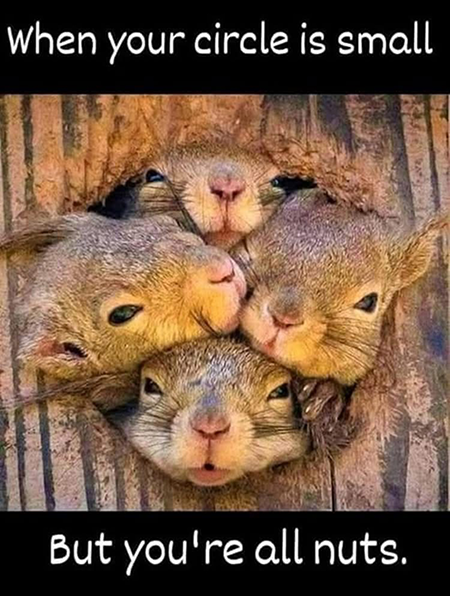Welcome and thank you for being here. This week I’ve recast the structure of my Wednesday emails. Instead of 4-5 long stories with links, there are two shorter stories with links. And then a new Bits and Bytes section with additional links on STEM/STEAM topics. This email’s links range from origami projects for kids to how animals sleep. With links for typewriter art, the Great Horse Manure Crisis of 1894, and why people build glass skyscrapers. Plus the world’s oldest lightbulb. Let’s get started exploring…
Origami for Kids
Researching last Wednesday’s email story about paper airplanes, I bumped into origami. It’s a neat way to get kids into creating 3D objects without the complexity of 3D printing. Instead, you work with paper and your hands to create objects. Origami might be a fun project to explore with your kids.
Origami principles also have real world uses. They’re used to design space telescopes. And solve interesting engineering problems like folding car airbags for deployment.
Origami Projects for Preschool
https://www.redtedart.com/origami-for-preschool/
In Quarantine? Here are 10 Easy Origami Projects For Kids
https://origami.guide/10-easy-origami-projects-quarantine/
7 Easy Origami Projects for Kids
https://www.thesprucecrafts.com/origami-projects-for-kids-4142802
Space Origami: Make Your Own Starshade
https://www.jpl.nasa.gov/edu/resources/project/space-origami-make-your-own-starshade/
On origami, and why STEM and arts belong together
https://medium.com/educreation/on-origami-and-why-stem-and-arts-belong-together-7111532b1c82
Origami and STEM
https://howtostem.co.uk/origami-and-stem/
https://www.youtube.com/watch?v=NYKcOFQCeno
How NASA Engineers Use Origami To Design Future Spacecraft
https://www.youtube.com/watch?v=Ly3hMBD4h5E
Robert J Lang
https://langorigami.com/
https://langorigami.com/article/treemaker/
https://langorigami.com/article/googles-doodle-akira-yoshizawa/
The math and magic of origami | Robert Lang
https://www.youtube.com/watch?v=NYKcOFQCeno
Tech Today: Folding NASA Experience into an Origami Toolkit (Robert Lang)
https://www.nasa.gov/general/tech-today-folding-nasa-experience-into-an-origami-toolkit/
Typewriter Art
Manual typewriters can create artwork with only letters, numbers, symbols, and spaces. The results work both at a distance and close up. Far away, the human eye blends characters into lines and shades to form images. Close up, it’s easy to marvel at how each individual character exists by itself. But also blends into the whole image from far away.
You don’t need a manual typewriter to create this sort of art. A text editor works the same on a computer. First, define the width of the artwork you want to create. The width is how many characters per line counted from the left edge of your text editor. Then maybe draw the outline of what you want to create. Then hunt and peck on your keyboard to create the image, line by line.
James Cook, Typer
https://jamescookartwork.com/
https://www.youtube.com/@Mr_Typer
Paul Smith, Typewriter Artist
https://youtu.be/svzPm8lT36o
https://artstormer.com/2012/11/12/just-do-it-typewriter-art-by-paul-smith/
A Visual History of Typewriter Art from 1893 to Today
https://www.themarginalian.org/2014/05/23/typewriter-art-laurence-king
Programming is the art of telling another human being what one wants the computer to do. ― Donald Knuth
STEAM Bits and Bytes
Links I’ve come across recently that might interest you.
- Why Skyscrapers Became Glass Boxes. How buildings get made these days, in the US at least. (https://www.construction-physics.com/p/why-skyscrapers-became-glass-boxes)
- The Great Horse Manure Crisis of 1894. The technology we use to get around has always caused problems. Cars definitely are less disgusting than horses.
1. https://danszczesny.substack.com/p/the-great-horse-manure-crisis-of
2. https://en.wikipedia.org/wiki/Great_horse_manure_crisis_of_1894
3. https://www.historic-uk.com/HistoryUK/HistoryofBritain/Great-Horse-Manure-Crisis-of-1894/
4. https://www.nyhistory.org/community/horse-manure - The World’s Oldest Lightbulb. Switched on in 1901 and still working. It also has a webcam.
1. https://en.wikipedia.org/wiki/Centennial_Light
2. https://www.centennialbulb.org/cam.htm
3. https://www.centennialbulb.org/ - How Do Animals Sleep? You would not believe the many different ways animals sleep.
1. https://www.bbcearth.com/news/the-extraordinary-ways-that-animals-sleep
2. https://www.timeforkids.com/g56/power-nappers-g5
3. https://youtu.be/muKuRQ8YnvE (8 Strange Ways Animals Sleep)
4. https://kids.kiddle.co/Circadian_rhythm
5. https://www.tdisdi.com/sdi-diver-news/the-surprising-secrets-of-shark-sleep/ - Giraffes have the same number of neck vertebrae as humans? Saw this on a hotel TV show recently. https://www.clevelandzoosociety.org/z/2021/03/02/truth-or-tail-giraffe-have-more-neck-bones-than-a-human
This Week
Our Sunday email this week will have fun often offbeat links about something that may have visited our solar system and rearranged our planets. Like you walk into a room and tidy up. And links that describe how transcendent thinking can boost teenage brains. And an app that helps reduce depression by curbing rumination, revisiting often unpleasant or stressful events over and over. Not to be confused with ruminants like cows. Plus links about mirror life, what cities might be underwater by 2050, and where memories are stored in our brains. Look for the email this Sunday.


